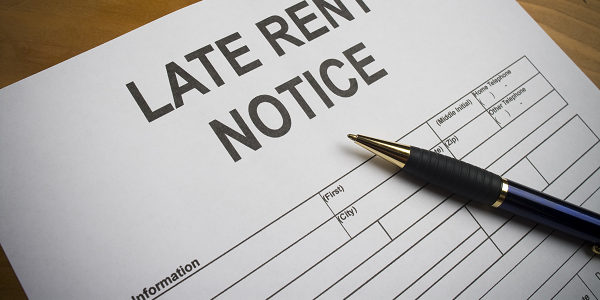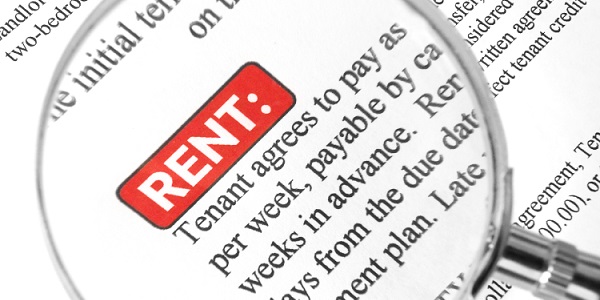When was the last time you reviewed your lease? For a surprising number of operators, the answer is too long ago. I had a client recently who had not reviewed his lease since 1979! An outdated lease can be devastating to your business in an age in which people are suing over words such as “security” and “surveillance.”
Perhaps you have updated your lease within the last couple of years; but is it written well enough to protect your facility? The following quiz will help you answer that question. There is no perfect lease, and this list is certainly not all-inclusive, but it should get you thinking in the right direction.
Answer these questions and tally up your points!
1. 5 points. My lease somewhere mentions “warehouse” (such as mini-warehouse). Statutes say that self-storage is not warehousing, which requires a bill of lading.
In warehousing, you take custody and control of the goods and have to insure the goods. The word shouldn’t appear at all unless you are saying that your facility is not a warehouse as defined by such-and-such statute.
2. 10 points. My lease contains the word “surveillance,” which is defined in the dictionary as “to watch at all times.” When you talk about “surveillance” cameras, what you are implying is that someone is watching those cameras 24 hours a day, seven days a week.
Video or gate “monitoring” has essentially the same connotation as surveillance and should be avoided as well. If the manager leaves to go to church or elsewhere, it’s no longer being monitored, is it? If you paid ADT $25 per month to monitor your house, would it be okay with you if they had the monitoring center open only from 8 a.m. to 6 p.m.? Simply referring to a “camera system” or “video recording system” is better.
3. 5 points. My lease contains the word “security.” The word security is defined in the dictionary as “freedom from risk of danger.” Don’t call it a security camera―call it a camera. A camera doesn’t free you from risk. Some leases, instead, refer to a “security-type” system, which is preferable.
4. 5 points. My lease says that it renews automatically on the “anniversary” date. This means, literally, that it renews once a year. There is really no such thing as a lease that renews on the “anniversary” date each month. Just ask your spouse what happens if you miss an anniversary and then imagine if you miss the once a year opportunity to raise rent. Using “renewal” date, or simply the “xth” of each month is preferable.
5. 5 points. My lease refers to “climate control.” This is such a nebulous term that it’s dangerous. Climate refers to the environment. If it’s raining outside, can you control that? Can you stop it from being very hot in Arizona?
What you are really controlling is the interior air temperature and perhaps the relative humidity level. Temperature control or air cooling are better terms. Climate control is a term this industry adopted without stopping to develop a definition. Now it’s a problem because the state attorneys general are looking at it and saying, “What did you mean by that?”
6. 5 points. My lease mentions the word “abandonment.” Many leases state that something will happen if the unit is discovered in a state of abandonment. The problem is, to “abandon” is an act, which implies intent. You are now climbing into the customer’s mind and saying that it was their intent to give up their right to or interest in the contents of the unit. Prove it.
Given all the other remedies available today, to declare abandonment may not be the best option, and I don’t think the word belongs in your lease. You can simply say, instead, that if a unit is in default (and if your statute allows it), you will dispose of or sell the property left in a unit.
7. 10 points. My lease has spaces for the names of people other than the tenant who have “authorized access,” or it allows more than one tenant on the lease.
If you have a space on your lease where customers can name other people authorized to access the unit, then you must let them. Why do that? Can’t the customer just give these people the gate code and the key? Maintaining a list of others who are authorized access is implying that you are a gatekeeper.
Let tenants know that you have given them a lock with extra keys, but that you don’t stand at the gate and stop people, nor do you keep track of whom they’ve given access to. It’s not a good idea to put this in your lease as policy, however; you don’t want to advertise that it’s okay to invite other people onto the property. It only needs to be mentioned when a customer says, “We both want to be on the lease.” You can then simply tell them, “I’m sorry, our policy is only one person on the lease, but here is a lock with two keys.”
8. 5 points. I’ve added clauses to my lease that I’ve read about or heard about at trade shows without looking to see whether they conflict with or even contradict another part of the lease.
9. 5 points. My lease allows for more than one late fee per month. Most courts now hold that more than one late fee per month is punitive.
10. 10 points. I’ve never read my state’s self-storage statute. This probably shows up as a fault in your lease somewhere. Note: Tammy I am not sure what this means JG
11. 10 points. I don’t make special provisions for vehicle storage in my lease. Clauses in a lease should deal specifically with vehicle storage, which is very different from other goods. Not only is there a danger with gas and oil (of which your lease probably prohibits storage), you need to gather other information such as VIN numbers, insurance information, and lien holder information.
12. 10 points. I have no clauses that say what cannot be stored, such as hazardous materials, items that are irreplaceable, and those with emotional or sentimental value.
13. 10 points. I have no clause in my lease that specifies value limits on items stored.
14. 5 points. I do not have a mediation or arbitration clause in my lease to resolve disputes.
In my case, if a customer sues a client who has this clause in their lease, the first thing I do is move to dismiss the case because they didn’t try to arbitrate or mediate. Most courts in the country should enforce that.
15. 5 points. I do not have a clause in my lease that names my state as the controlling jurisdiction. Your lease should specify that the laws of your state shall abide in any dispute, and that the site of any arbitration shall be the state in which the facility is located.
16. 5 points. I do not have a jury waiver in my lease. You can’t always win a jury waiver, but your chances are better if it’s in your lease.
17. 5 points. I don’t disclaim the possibility of mold or insect damage to stored property in my lease. Most liability waivers mention several exceptions such as moisture and fire, but these are often left out.
18. 10 points. I don’t disclaim the failure of security-type systems, especially in the case of power outages, equipment malfunctions, etc.
19. 5 points. I require the tenant to initial various parts my lease (unless the state requires it). Inevitably, the one place a manger missed getting the customer to initial on a busy Saturday is the one point you’ll be sued over!
20. 5 points. I don’t have a disclaimer that unit sizes are approximate. Yes, people are suing over this issue.
21. 25 points. When I opened my facility, I borrowed the lease from another facility and have never really gone over it. Sorry, we’ll have to assign big points for this one. It’s like the public service commercials a few years ago saying that when you sleep with someone, you’re sleeping with everyone they ever slept with. You have no idea where that lease has been.
If you scored 60 points or higher, get thee to an attornery! It’s time to spring for a thorough review of your lease if not a re-write. Not every self-storage attorney will agree with all of these items―they are simply my personal hot buttons. There are also many other lease problems not included in this list. Do follow the advice of your own attorney. Then give yourself a 100% for doing the right thing with your lease.
Be aware that what you don’t know can kill you! I’ve seen a wedding dress burn in a fire and the self-storage owner sued for its sentimental value. I witness daily the kinds of lawsuits tenants are filing and how the courts view what was agreed upon in the lease between the two parties. The self-storage lease is your most valuable tool for protecting your business. Make sure it’s performing well for you.
This column contains legal information that is generalized to illustrate legal principles and laws, and should not be substituted for the advice of your own attorney.
Jeffrey Greenberger is a partner with Katz Greenberger & Norton LLP law firm in Cincinnati, Ohio, and is legal counsel for the Ohio Self-Storage Owners Society, Inc., and the Kentucky Self-Storage Association, Inc.



